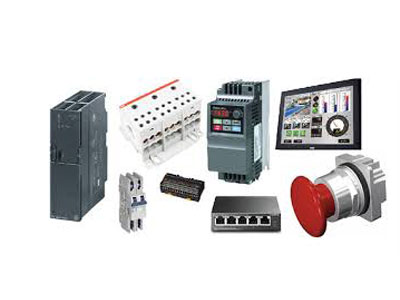What Is The Purpose Of A SCADA Control Panel?
Key Takeaway
The purpose of a SCADA control panel is to monitor and control industrial processes and equipment in real-time. SCADA (Supervisory Control and Data Acquisition) systems help organizations manage complex operations like electricity generation, oil and gas refining, water distribution, and more. The control panel allows operators to view data, make adjustments, and interact with equipment such as pumps, valves, and sensors from a central location.
SCADA systems collect data using sensors and devices, then process and display it through the control panel. This helps increase efficiency, reduce waste, and improve overall safety. For example, SCADA is used in smart cities to manage traffic signals and power usage. The system communicates through wired or wireless networks, with security measures in place to protect data during transmission.
Centralized Monitoring of Industrial Systems
One of the primary purposes of a SCADA control panel is centralized monitoring. It allows operators to keep track of an entire industrial system from a single, unified interface. This centralization simplifies complex monitoring tasks and ensures that operators have access to all critical data in one place. Whether it’s a power plant, a water treatment facility, or a manufacturing plant, SCADA panels consolidate data from different sources such as sensors, PLCs (Programmable Logic Controllers), and RTUs (Remote Terminal Units).
Centralized monitoring provides operators with a real-time overview of system performance, enabling them to identify issues and take immediate action. This helps reduce the need for manual oversight and allows for a more streamlined and responsive management process. In essence, it empowers operators to handle large-scale operations with ease, ensuring that each component of the system is functioning optimally.

Data Collection and Analysis
Data collection and analysis are crucial aspects of SCADA control panels. These panels gather data from various field devices, sensors, and machinery, compiling it into a coherent format that operators can analyze. The ability to collect data in real-time allows industries to monitor critical parameters such as temperature, pressure, speed, and flow rates.
Once collected, this data can be analyzed to identify trends, detect abnormalities, and optimize system performance. For example, SCADA panels can alert operators to unusual patterns that may indicate a potential issue, allowing for early intervention. Historical data stored by SCADA systems can also be used for long-term analysis, helping engineers and decision-makers improve process efficiency and plan for future maintenance needs.
By transforming raw data into actionable insights, SCADA control panels support better decision-making. This means that industries can implement predictive maintenance strategies, optimize resource usage, and minimize unplanned downtime, ultimately boosting productivity.
Integration with Automation Systems
Another significant purpose of a SCADA control panel is its seamless integration with automation systems. SCADA systems are designed to work alongside other industrial automation tools, such as PLCs and DCS (Distributed Control Systems). This integration allows for the automated control of equipment and processes, reducing the need for manual intervention and minimizing the risk of human error.
SCADA control panels facilitate this integration by providing a platform where all automation systems can communicate and be monitored simultaneously. This connectivity ensures that data flows smoothly between different devices and that any changes made on one end are reflected across the entire system. Whether it’s adjusting machine settings, turning equipment on or off, or changing process parameters, SCADA panels provide operators with the ability to control and synchronize automated operations efficiently.
Moreover, the integration of SCADA with other automation systems allows industries to achieve better coordination across different departments and processes. This synchronization can lead to more precise control and more efficient overall operations, boosting productivity and reducing operational costs.
Enhancing Decision-Making and Efficiency
SCADA control panels contribute significantly to enhancing decision-making and efficiency within an industrial setting. With a real-time display of data and comprehensive system analytics, operators can make more informed choices about their processes. The ability to monitor system performance, receive alerts, and access historical data means that decisions are not based solely on guesswork but on concrete data.
Operators can use SCADA panels to troubleshoot problems, adjust parameters for optimization, and monitor the effectiveness of changes in real-time. This leads to better control of production and operational processes. The result is an increase in efficiency, as the panel helps identify and eliminate inefficiencies, reduce waste, and maximize resource utilization.
Additionally, SCADA control panels can assist in creating workflows that are both faster and more cost-effective. When operators are equipped with precise information and can act quickly based on it, overall response times improve, which further supports operational efficiency.
Enabling Remote Control and Diagnostics
The ability to remotely control and diagnose issues is one of the most powerful purposes of SCADA control panels. With SCADA systems, operators can access data and control processes from anywhere with an internet connection. This is particularly beneficial for large-scale operations spread across multiple locations or in industries where access to physical sites may be limited due to safety concerns.
Remote diagnostics allow operators to identify problems and potentially solve them without needing to be on-site. This capability reduces downtime, increases the speed of issue resolution, and lowers operational costs. For example, if a machine shows signs of malfunction, an operator can remotely assess the problem, make necessary adjustments, or initiate a maintenance request.
The ability to control industrial systems remotely also provides added flexibility and resilience to operations. If unexpected issues arise, operators can respond promptly, even if they are not physically present, ensuring that processes continue smoothly with minimal disruption.
Conclusion
SCADA control panels are vital components in modern industrial settings, empowering operators with centralized control, data analysis, integration with automation systems, and remote access capabilities. These panels enable industries to enhance operational efficiency, improve decision-making, and maintain system reliability. By allowing for real-time monitoring, seamless data collection, and remote diagnostics, SCADA control panels help industries remain competitive and adaptive in a fast-paced environment.

